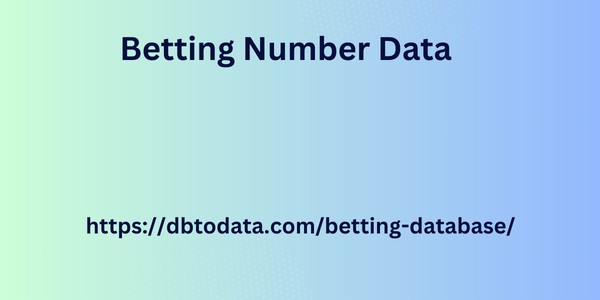Post by account_disabled on Mar 6, 2024 21:41:55 GMT -8
Challenges While the use of non-fungible tokens (NFTs) in the food and beverage industry offers new opportunities, it also presents significant challenges. In this blog post, we’ll explore the global food NFT market challenges, examining the key hurdles that food and drink branding companies may face when implementing NFTs in their business strategies. Challenges facing the implementation of NFTs in the Food Industry: Limited Consumer Awareness: Many consumers are still unfamiliar with NFTs and their potential applications in the food and beverage industry.
Food and drink branding companies may need to educate consumers about NFTs and their benefits to drive adoption and interest. Regulatory and Legal Issues: The use of NFTs in the food Betting Number Data industry may raise legal and regulatory issues related to intellectual property, licensing, and taxation. Brands must navigate these issues to ensure compliance with local regulations and protect their intellectual property. Environmental Concerns: The energy consumption associated with blockchain technology and NFT transactions has raised concerns about their environmental impact.

Food and drink branding companies must consider the sustainability of their NFT initiatives and look for ways to mitigate their carbon footprint. Security and Privacy Concerns: The use of NFTs involves the exchange of sensitive data and requires secure and transparent record-keeping systems. Brands must prioritize data privacy and security to ensure the protection of their customers’ information. Solutions for implementing NFTs in the Food Industry Educating Consumers: Food and drink branding companies can educate consumers about the benefits of NFTs through social media, marketing campaigns, and educational resources.
Food and drink branding companies may need to educate consumers about NFTs and their benefits to drive adoption and interest. Regulatory and Legal Issues: The use of NFTs in the food Betting Number Data industry may raise legal and regulatory issues related to intellectual property, licensing, and taxation. Brands must navigate these issues to ensure compliance with local regulations and protect their intellectual property. Environmental Concerns: The energy consumption associated with blockchain technology and NFT transactions has raised concerns about their environmental impact.

Food and drink branding companies must consider the sustainability of their NFT initiatives and look for ways to mitigate their carbon footprint. Security and Privacy Concerns: The use of NFTs involves the exchange of sensitive data and requires secure and transparent record-keeping systems. Brands must prioritize data privacy and security to ensure the protection of their customers’ information. Solutions for implementing NFTs in the Food Industry Educating Consumers: Food and drink branding companies can educate consumers about the benefits of NFTs through social media, marketing campaigns, and educational resources.
